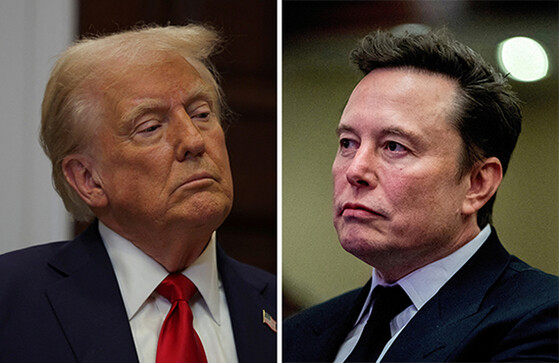
Elon Musk, the chief executive of Tesla, has once again launched a scathing critique against a sweeping tax and spending bill championed by U.S. President Donald Trump, labeling it "completely insane and destructive" and warning it would "destroy millions of jobs" in America. This renewed public denouncement comes just 17 days after Musk expressed regret for past "excessive" tweets targeting President Trump, suggesting a fragile truce between the two influential figures has quickly dissolved.
Musk’s latest condemnation, voiced on the social media platform X on June 28 (local time), specifically targeted the recently unveiled Senate draft of the legislation. He asserted that the bill would inflict "immense strategic damage" on the United States by favoring "past industries" with subsidies while "severely harming future industries." The tech magnate further amplified his criticism by sharing another user's post highlighting the bill's alleged provision to increase taxes on all uncommenced wind and solar power projects, a move he believes undermines renewable energy development.
The legislative package, dubbed the "One Big, Beautiful Bill" by President Trump, is currently under intense debate in the U.S. Senate. At its core, the bill aims to make permanent many of the tax breaks enacted during Trump’s first term, which are otherwise set to expire by year-end. This includes provisions for no taxes on tips and a significant increase in national security spending, reportedly including substantial funds for a mass deportation agenda. The legislation also proposes to raise the nation's debt ceiling by trillions of dollars to prevent a potential default.
However, the bill has faced considerable internal dissent, even within Republican ranks, primarily over its proposed spending cuts. Some lawmakers have expressed concerns that these cuts, particularly those affecting Medicaid, go too far and could negatively impact vulnerable populations and rural hospitals. The nonpartisan Congressional Budget Office (CBO) has indicated that an earlier House-passed version of the bill could result in 10.9 million fewer people having health care coverage and at least 3 million fewer qualifying for food aid, while top income earners would see significant tax cuts. The Senate draft, which includes steeper reductions, is still awaiting the CBO's public assessment.
President Trump has vigorously pushed for the bill's swift passage, urging Senate Republicans to finalize the legislation before the upcoming July 4 holiday. In a Truth Social post on June 24, he implored his "friends in the Senate" to "finish the job this week," even if it meant remaining "locked in their offices." The bill has navigated parliamentary hurdles under the Senate's strict "Byrd Rule," which limits the inclusion of policy matters in budget bills without a supermajority vote.
Musk's current opposition to the bill marks a significant turn in his complicated relationship with the Trump administration. Earlier in Trump's second term, Musk assumed the leadership of the newly formed Department of Government Efficiency (DOGE). Created by executive order, DOGE’s stated mission was to modernize federal information technology, maximize productivity, and significantly reduce government regulations and spending. Musk, designated as a senior advisor and de facto leader, oversaw efforts that reportedly led to the dismissal of tens of thousands of federal workers and the curtailment of collective bargaining rights for over a million others.
However, after a 130-day tenure as a special public servant, Musk abruptly departed the administration and almost immediately began voicing strong dissatisfaction with the very policies Trump championed. In earlier criticisms of the bill, Musk had called it a "disgusting abomination" and an "outrageous, pork-filled" spending package that would "massively increase the already gigantic budget deficit." He also specifically criticized the bill for potentially cutting electric vehicle tax credits, a measure that would directly impact companies like his own Tesla.
The public spat between Musk and Trump escalated to the point where Musk even publicly endorsed arguments for Trump's impeachment and made claims linking the former president to a sex scandal. Yet, in a conciliatory move on June 11, Musk acknowledged that some of his previous posts about the President had "gone too far," a sentiment Trump reportedly accepted, temporarily mending their fractured relationship. This latest broadside against the tax bill, however, signals a fresh chapter in their unpredictable and often contentious dynamic.
[Copyright (c) Global Economic Times. All Rights Reserved.]




























